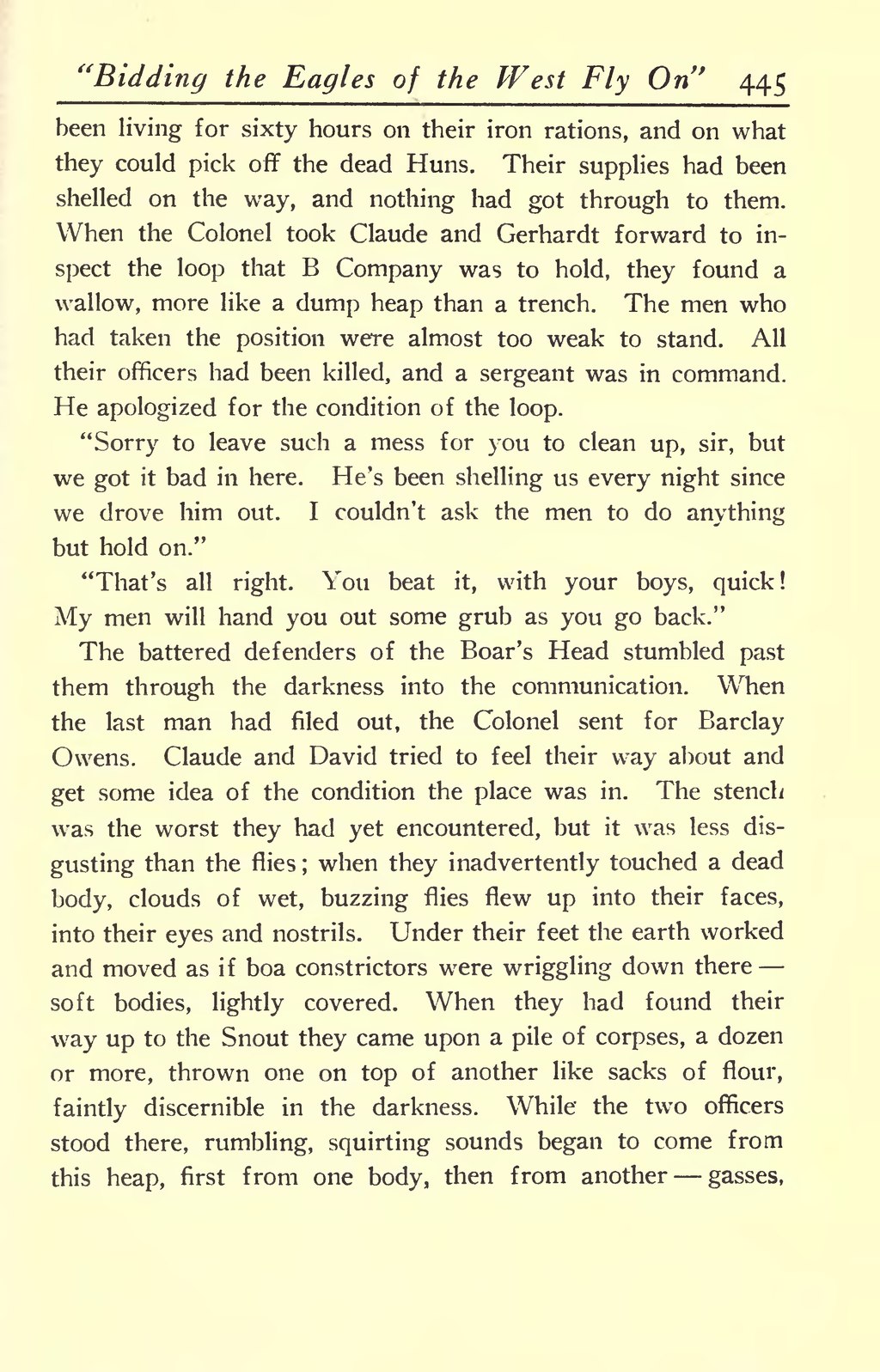been living for sixty hours on their iron rations, and on what they could pick off the dead Huns. Their supplies had been shelled on the way, and nothing had got through to them. When the Colonel took Claude and Gerhardt forward to inspect the loop that B Company was to hold, they found a wallow, more like a dump heap than a trench. The men who had taken the position were almost too weak to stand. All their officers had been killed, and a sergeant was in command. He apologized for the condition of the loop.
“Sorry to leave such a mess for you to clean up, sir, but we got it bad in here. He’s been shelling us every night since we drove him out. I couldn’t ask the men to do anything but hold on.”
“That’s all right. You beat it, with your boys, quick! My men will hand you out some grub as you go back.”
The battered defenders of the Boar’s Head stumbled past them through the darkness into the communication. When the last man had filed out, the Colonel sent for Barclay Owens. Claude and David tried to feel their way about and get some idea of the condition the place was in. The stench was the worst they had yet encountered, but it was less disgusting than the flies; when they inadvertently touched a dead body, clouds of wet, buzzing flies flew up into their faces, into their eyes and nostrils. Under their feet the earth worked and moved as if boa constrictors were wriggling down there—soft bodies, lightly covered. When they had found their way up to the Snout they came upon a pile of corpses, a dozen or more, thrown one on top of another like sacks of flour, faintly discernible in the darkness. While the two officers stood there, rumbling, squirting sounds began to come from this heap, first from one body, then from another—gasses,
